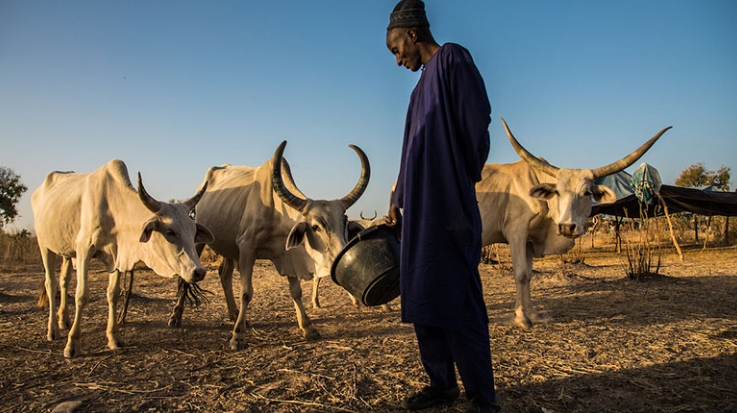Strengthening Pastoral Livelihoods: Addressing Challenges and Recommendations (GS Paper 3, Land Reforms)

Introduction:
- The recent report from the United Nations Convention on Combating Desertification (UNCCD) underscores the critical importance of addressing the challenges faced by pastoralists in India while also highlighting the economic contributions and cultural significance of pastoralism.
- This article delves into the intricacies of pastoral livelihoods, the hurdles they encounter, and offers comprehensive recommendations for sustainable solutions.
Understanding Pastoralism:
- Pastoralism is a livelihood system deeply rooted in livestock production, encompassing various activities such as livestock rearing, dairy production, meat production, wool production, and leather production.
- Characterized by mobility, pastoralists often migrate with their herds seasonally to access fresh pastures and water sources.
- This traditional way of life is intertwined with rich cultural traditions, specific social structures, and adaptive practices.
Challenges Confronting Pastoralists:
Pastoralists in India grapple with multifaceted challenges that jeopardize their livelihoods:
- Land Rights: Many pastoral communities depend on common grazing lands, yet these areas often lack official recognition and clear ownership, leading to disputes and insecurity.
- Land Fragmentation: Population growth exerts pressure on land resources, resulting in the conversion of grazing lands for agriculture or development projects, disrupting traditional migration patterns and reducing available resources.
- Livelihood Threats: Limited access to grazing lands coupled with market exploitation by middlemen pose significant threats to the economic sustainability of pastoralists.
- Sedentarization: Government policies promoting sedentarization disrupt traditional nomadic lifestyles, adversely impacting the efficiency of livestock management.
- Access to Veterinary Care: Nomadic pastoralists, especially those in remote areas, often lack access to essential veterinary services, leaving their livestock vulnerable to diseases and economic losses.
Economic Contributions of Pastoralists:
- Despite these challenges, pastoralists make substantial contributions to India's economy and agricultural sector.
- With approximately 13 million pastoralists spread across various communities, they play a pivotal role in livestock production, accounting for a significant portion of the national GDP, particularly in agriculture.
- Furthermore, pastoralists are instrumental in milk and meat production, contributing to food security and economic growth.
Recommendations for Sustainable Solutions:
To address the challenges faced by pastoralists and promote sustainable pastoral livelihoods, the following recommendations are proposed:
- Climate-Smart Management: Integrate climate change adaptation strategies into rangeland management plans to enhance resilience and mitigate environmental degradation.
- Protect Rangelands: Enact measures to prevent the conversion of rangelands for other purposes, safeguarding biodiversity and ecosystem services.
- Conservation through Use: Implement sustainable land management practices within and outside protected areas to ensure the long-term health and productivity of rangelands.
- Support for Pastoralism: Advocate for policies that recognize and support traditional pastoralist livelihoods, while addressing external threats such as climate change and overgrazing.
- Community Engagement: Foster inclusive decision-making processes that involve pastoral communities in land management and conservation efforts, ensuring their active participation and empowerment.
Conclusion:
- Addressing the challenges confronting pastoralists in India requires concerted efforts from policymakers, stakeholders, and local communities.
- By implementing the recommended solutions and supporting the resilience of pastoral livelihoods, India can harness the economic and environmental benefits associated with pastoralism while preserving the cultural heritage of these communities for future generations.


